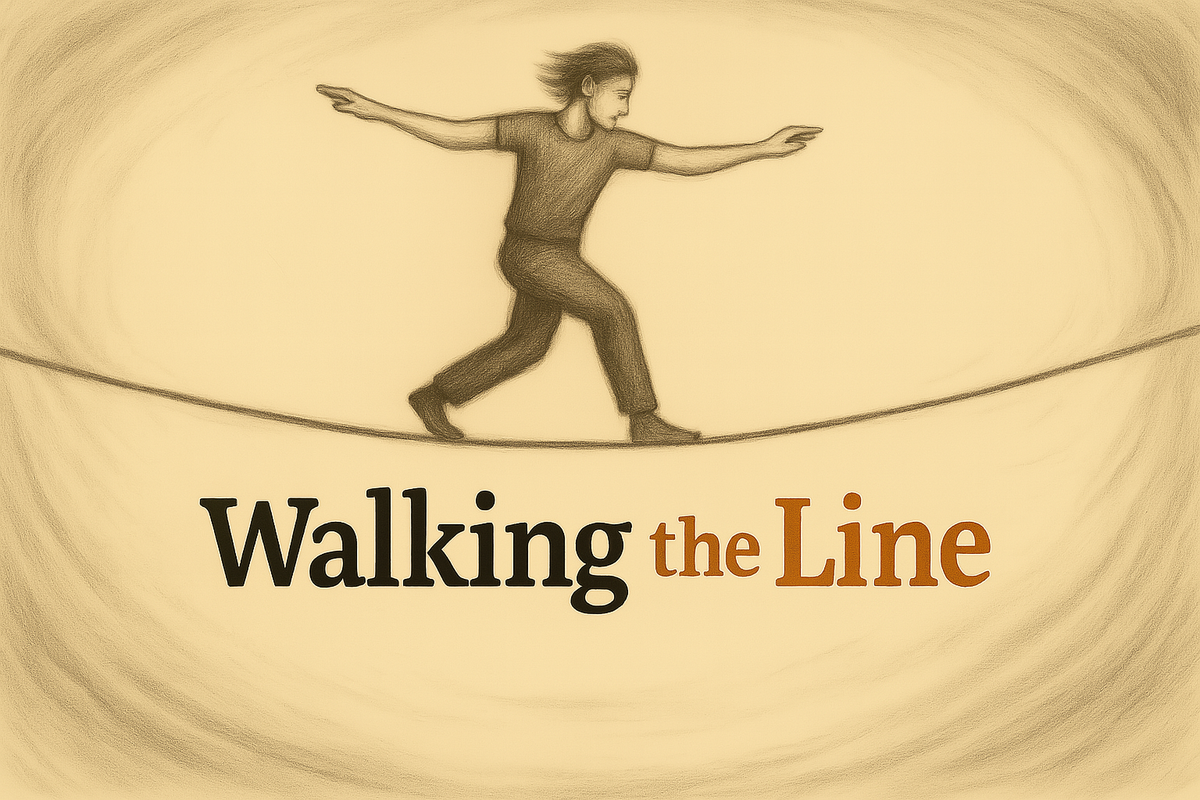Walking the Line
Acceptance without growth is stagnation. Growth without acceptance is self-rejection. The real challenge is learning to walk that line.

Have you ever considered how self-improvement can be a double edged sword?
It can feel like a noble pursuit but often hides a more subtle hunger. It sells you the promise that with just a little more effort, a little more discipline, a little more self-analysis, you can finally become someone worthy.
An obvious, yet overlooked trap.
The more you obsess over improving yourself, the more you reinforce the quiet belief that you are not enough as you are. That who you are now is something to be fixed.
Acceptance without growth is stagnation. Growth without acceptance is self-rejection. The real challenge is learning to walk that line.
To be honest about your blind spots without making them your identity.To acknowledge your shadows without believing you are broken.
I think about it particularly when conflict arises. When someone challenges you, do you rush to defend the facade you’ve been maintaining, your story of who you are? Or do you slow down long enough to look for what’s true?
A while back, I had a falling out with a friend. Before I responded, I didn’t just trust my first reaction.
I checked in with different mirrors.
I asked five friends who don’t know each other for their perspective. I asked my parents. I asked my therapist. I asked my partner.
Not because I needed them to decide for me, but because I needed to make sure I wasn’t confusing my projections with reality.
I needed to see where my blind spots might have shaped the situation. Ultimately to take responsibility for my part in the conflict.
Because if you don’t face what is, life will eventually throw something at you that forces you to. Conflict. Loss. Change. Life is relentless in its invitation to see yourself clearly.
So consider this, are you spending your energy maintaining the structure of your identity or using it to meet reality as it is?
Thus the question isn’t “How do I finally become better?” but rather How do I stand in the tension between acceptance and transformation—without losing myself to either one?

Comments ()